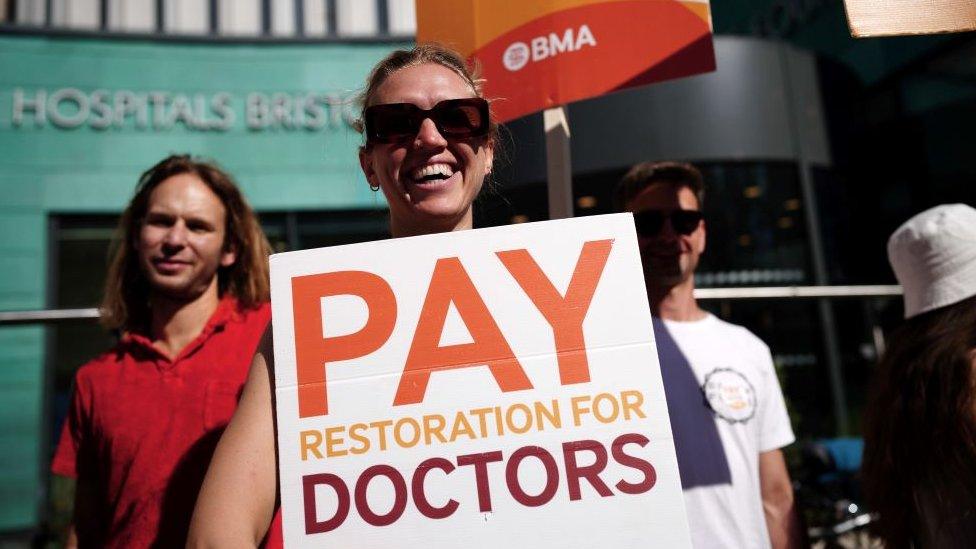Junior doctors vote to continue strike action
- Published
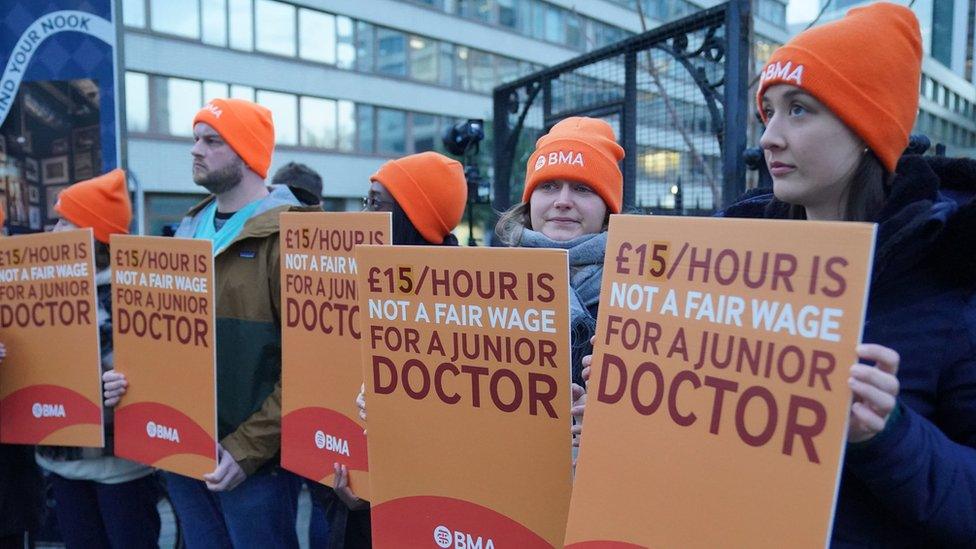
Junior doctors joined picket lines outside hospitals during a recent strike in January
Junior doctors in England have voted in favour of continuing strike action in their pay dispute.
Some 98% of members of the British Medical Association who voted backed further walkouts, on a turnout of 62%.
There have been 10 walkouts so far by junior doctors since the first one in March last year.
The British Medical Association (BMA) has asked for a 35% pay rise, but ministers have described the demands as unreasonable.
Two-thirds of junior doctors are members of the BMA.
The vote result means the union has a strike mandate for a further six months.
Junior doctors committee co-chairs Dr Robert Laurenson and Dr Vivek Trivedi said: "It has now been a year since we began strike action.
"That is a year of too many strikes. The government believed it could ignore, delay, and offer excuses long enough that we would simply give up.
"We ask the health secretary to come forward as soon as possible with a new offer - and make sure not a single further strike day need be called," they said.
A Department of Health and Social Care spokesperson described the result as "disappointing", and said the BMA needed to come back to the negotiating table with reasonable expectations so a "fair deal" could be found for the NHS, doctors and patients.
They said further strikes will "impede the progress" being made in tackling the hospital backlog.
Junior doctors received a pay rise averaging nearly 9% this financial year.
During talks at the end of last year, the option of an extra 3% on top of that was discussed. But those talks ended in early December without a deal being reached.
The BMA wants a 35% pay increase to make up for what it says is 15 years of below-inflation pay rises.
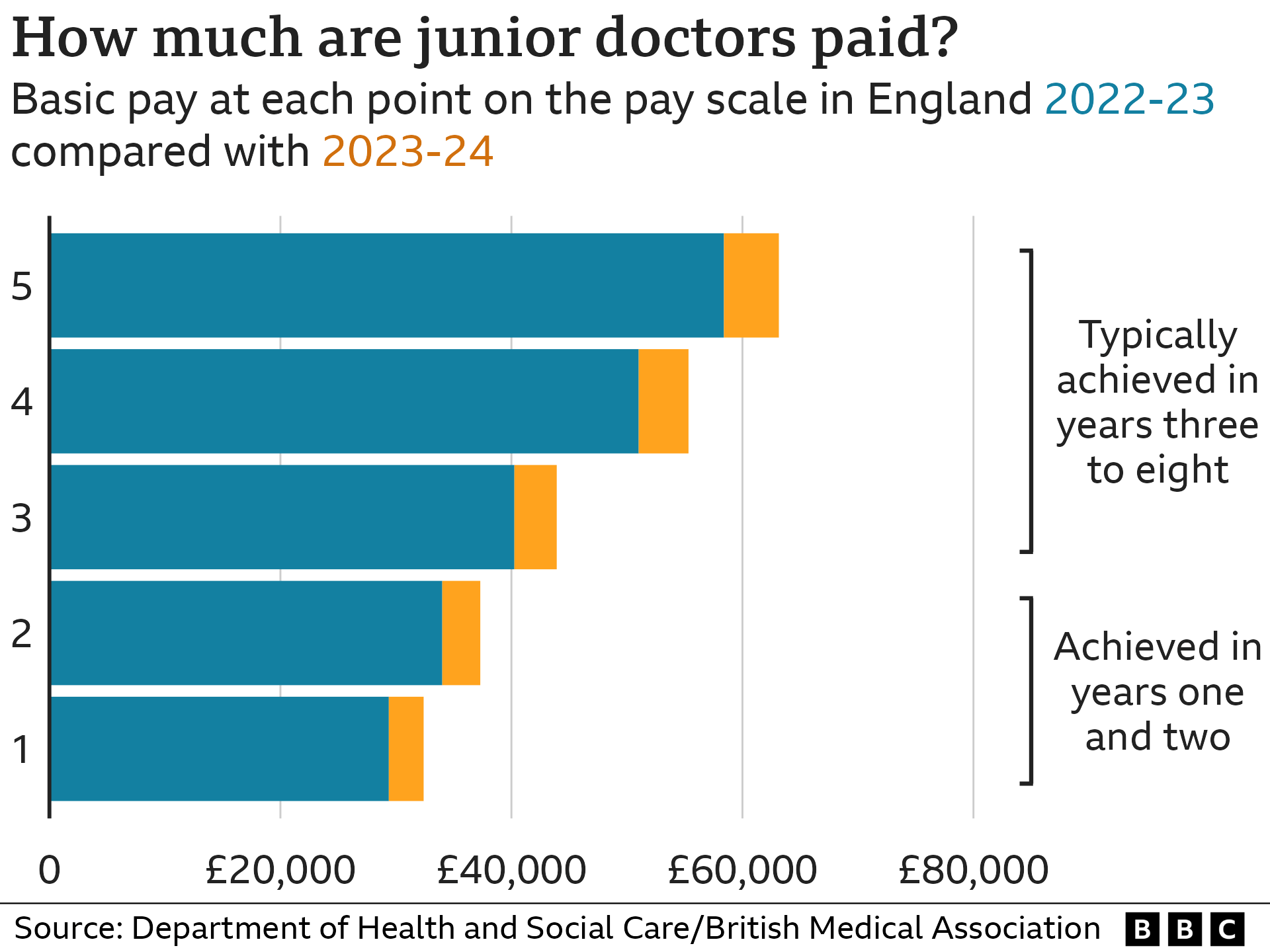
There have been no formal talks since the December negotiations ended, and the BMA is boycotting the pay review process for next year, by refusing to provide evidence to the independent pay review body which makes recommendations on pay rises.
Junior doctors in Wales and Northern Ireland are also involved in strike action.
Meanwhile, consultants in England are voting on whether to accept a revised pay offer from ministers after putting their strike action on pause.
More than 1.4 million operations and appointments in total have been cancelled because of strike action by health workers including doctors, nurses and other healthcare professionals since December 2022.
Disputes involving the majority of the other health workers have been resolved.
Saffron Cordery, of NHS Providers, which represents hospital managers, said the result of the ballot marked "another worrying escalation" of the dispute.
She urged both sides to find a solution, adding further strikes would "inevitably lead to more disruption to patient care".

Are you a doctor with a view on the strike? Are you a patient waiting for treatment? Get in touch by emailing haveyoursay@bbc.co.uk, external.
Please include a contact number if you are willing to speak to a BBC journalist. You can also get in touch in the following ways:
WhatsApp: +44 7756 165803
Tweet: @BBC_HaveYourSay, external
Please read our terms & conditions and privacy policy
If you are reading this page and can't see the form you will need to visit the mobile version of the BBC website to submit your question or comment or you can email us at HaveYourSay@bbc.co.uk, external. Please include your name, age and location with any submission.
- Published6 January 2024
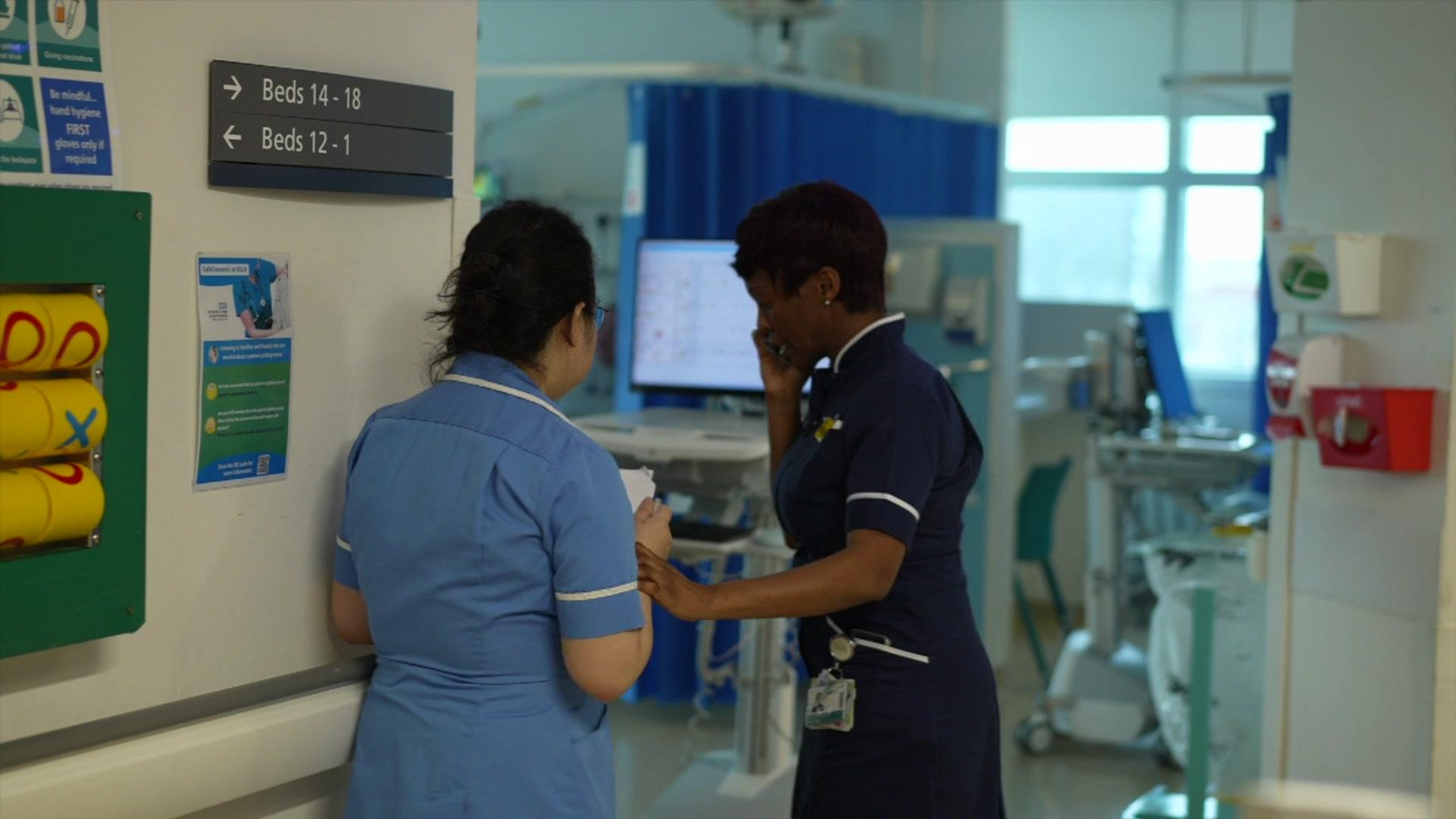
- Published4 January 2024
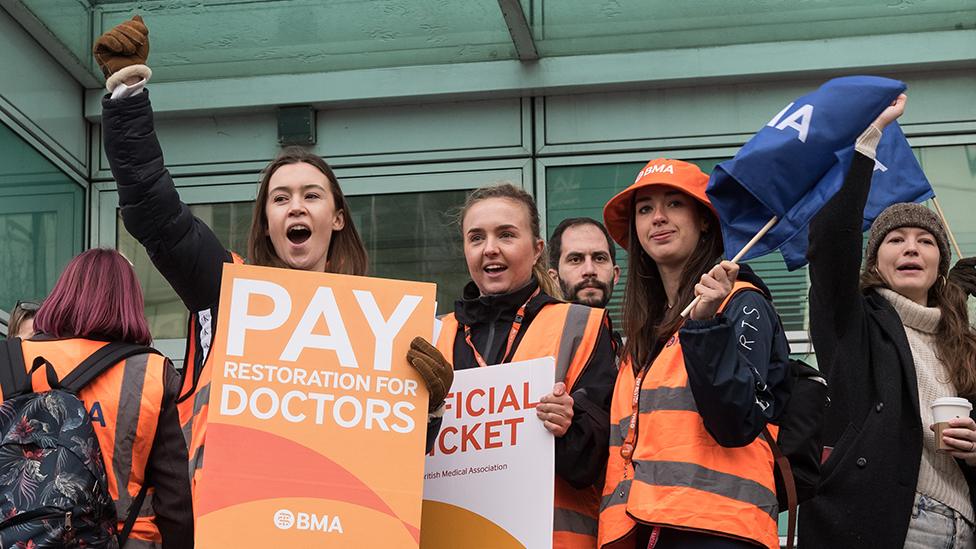
- Published3 January 2024
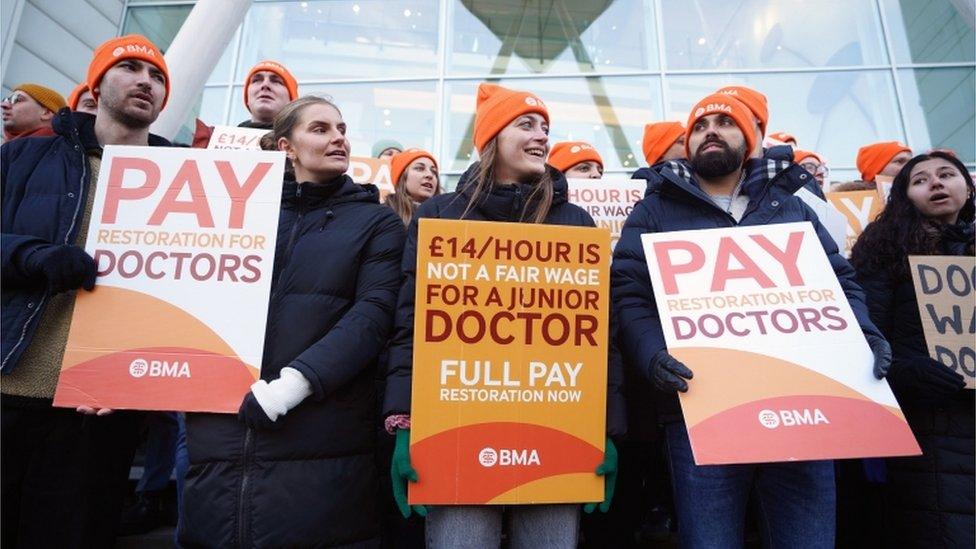
- Published5 December 2023
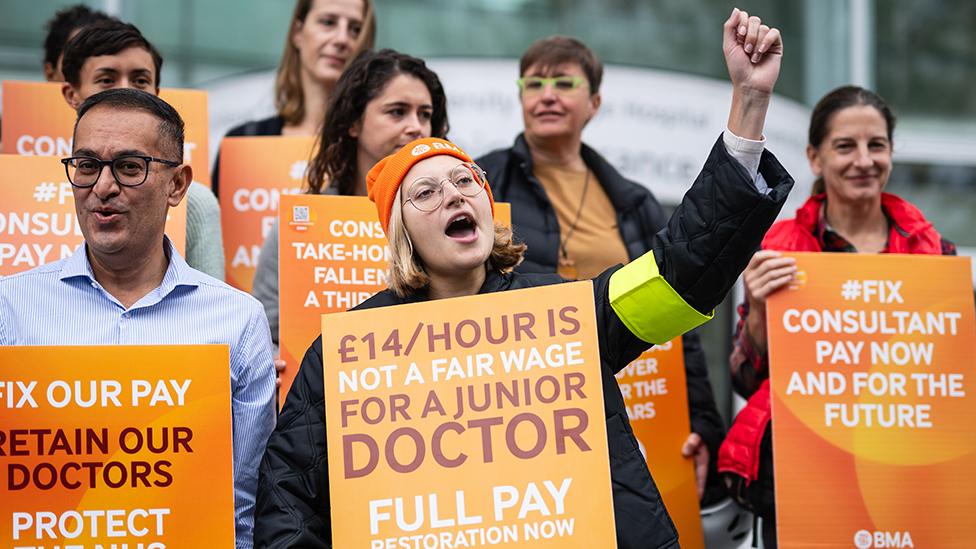
- Published27 December 2023
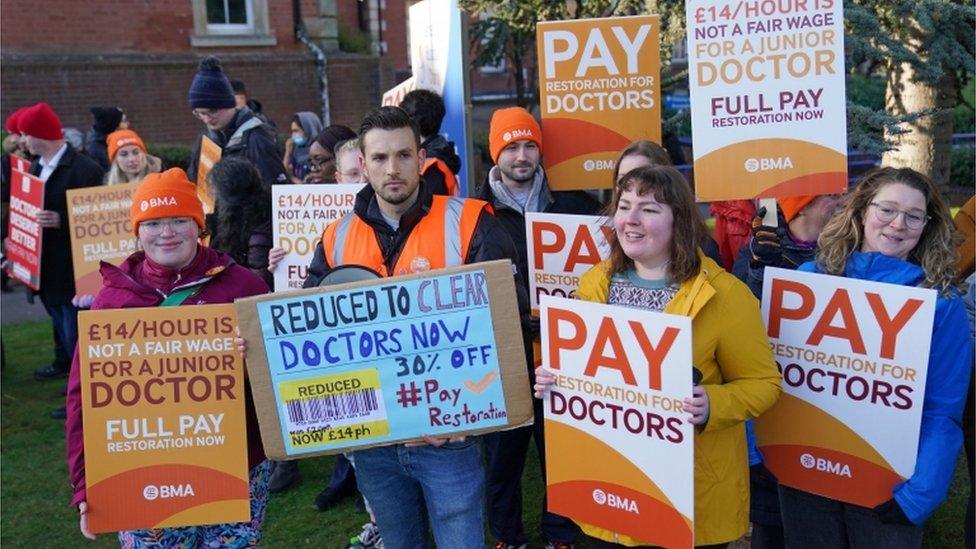
- Published25 September 2023
